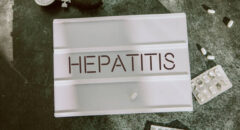
While some conditions, like cancer or dementia, have no clear road to a cure; there are others that can plausibly be eradicated within our lifetime. Researchers and physicians have expressed hope that the U.S. population can likely eradicate Hepatitis C within the near future. However, stigma and fear often keep people from seeking treatment and contribute to the spread of the disease. To achieve the eradication of Hep C, there are steps that we can all take towards a healthier future.
Get Tested
In our modern society, advanced technology has allowed us to get a glimpse of what is happening within our bodies within minutes, hours, or days. Getting tested for Hepatitis C can bring you comfort by either assuring that you do not have the disease or providing an impetus to find treatment. In this case, ignorance is not bliss.
Catching Hepatitis C in its early stages is essential to getting effective treatment and stopping the spread of the disease to other parts of your body.
If you have a primary care provider, you can request a test from them.
Additionally, healthcare centers like CVS Minute Clinic or local health departments can typically administer tests at low or no cost. Get tested, know your status, and take action accordingly.
READ: Could You Have Hepatitis C and Not Know It?
Have an honest conversation with your doctor
Your doctor is not there to shame you. If you feel like your doctor is berating or judging you, then it is time to find a new healthcare provider. If you have been engaging in risky behaviors - such as sharing needles, unprotected sex with an infected person - or suspect that you have come into contact with infected bodily fluids; tell your doctor your concerns and ask for a test.
The anxiety of not knowing can make the experience more miserable and delay treatment if you do have the disease. Although Hep C starts in the liver, it can continue to spread to other parts of the body and lessen the likelihood of recovery.
Evaluate treatment options
If your test comes back positive, then it’s time to start talking about treatment options. This is an important conversation to have with your
PCP or healthcare provider.
The current common treatment is an 8-12 week regimen of pills to help with the severe side effects. At the end of the 8-12 weeks, most of the virus is not detectable in your bloodstream.
READ: Hepatitis C: Rejecting Shame & Being Proactive About Your Treatment
Consider lifestyle changes
While anyone can contract Hep C, there are some groups that are at higher risk. Those who share needles to inject substances or use unclean needles are mainly at risk. This is particularly why hepatitis is overwhelmingly seen in unhoused populations, who may not be vaccinated against Hep A or Hep B, or those suffering from addiction.
Additionally, those who have unprotected sex with multiple partners without getting tested or asking about testing status are at a higher risk. It is especially important for those who may have been exposed to HIV to be tested for Hep C because the combination of the two can cause severe damage to the liver.
When engaging with a new sexual partner, make sure to confirm testing status. Between every sexual partner, get tested for a full panel of STIs, including Hep C and HIV.
A future without Hepatitis C is within our reach. It’s our job to be responsible individuals and take ownership of our health. Not knowing should not be your first option.
Getting tested and making smart choices is the biggest step we can take to secure a healthier future.









